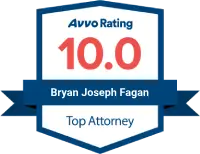Frequently Asked Questions
None - Inadequate instructions for questions?
Inadequate instructions for questions can lead to confusion and misunderstandings. To ensure clarity, it’s important to provide detailed guidance and context for each question, helping users to better understand what information is needed.
What are the steps in a divorce?
The steps in a divorce include filing a petition, serving your spouse, responding to the petition, negotiating settlement terms, and finalizing the divorce through a court hearing or agreement. Each step requires careful attention to legal details.
How to choose a divorce lawyer?
Choosing a divorce lawyer involves considering their experience, expertise in family law, and understanding of your unique situation. Look for reviews, schedule consultations, and ensure you feel comfortable with their approach to your case.
What is the cost of divorce services?
The cost of divorce services varies based on factors such as complexity and duration of the case. At Bryan Fagan Law Office, we offer flexible pricing and free consultations to help you understand your options.
How long does a divorce take?
The duration of a divorce can vary significantly based on several factors. Typically, in Texas, an uncontested divorce may take around 60 days, while contested cases can extend for several months or even years, depending on the complexity of the issues involved.
What are grounds for contested divorce?
The grounds for contested divorce are the legal reasons one spouse uses to challenge the divorce, which may include adultery, abandonment, cruelty, or irreconcilable differences. Each ground can significantly impact the divorce proceedings.
What to expect during divorce proceedings?
During divorce proceedings, you can expect a structured process that includes filing paperwork, attending hearings, and potentially negotiating settlements. The Bryan Fagan Law Office will guide you through each step, ensuring you understand your rights and options.
How to prepare for a divorce consultation?
Preparing for a divorce consultation involves gathering relevant documents, such as financial statements, marriage certificates, and any custody agreements. Additionally, consider writing down your questions and concerns to ensure a productive discussion with your attorney.
What documents are needed for divorce?
The documents needed for divorce typically include a petition for divorce, financial disclosures, marriage certificate, and any prenuptial agreements. Additional documents may be required depending on the specifics of your case.
How to handle child custody in divorce?
Handling child custody in divorce involves prioritizing the best interests of the child, negotiating custody arrangements collaboratively, and seeking legal guidance to ensure a fair outcome. Open communication and mediation can help resolve disputes effectively.
What are the benefits of mediation?
The benefits of mediation include a more amicable resolution process, reduced legal costs, and greater control over the outcome. It allows both parties to communicate openly, fostering collaboration and potentially preserving relationships during a divorce.
How to divide assets in divorce?
Dividing assets in a divorce involves identifying marital property, valuing it, and negotiating a fair distribution based on various factors, including each spouse's financial situation and contributions to the marriage. Consulting with a divorce attorney can help ensure a fair process.
What is the role of a divorce attorney?
The role of a divorce attorney is to provide legal guidance and representation during divorce proceedings, ensuring clients understand their rights, navigate complex legal processes, and achieve fair outcomes regarding asset division, child custody, and support arrangements.
How to file for divorce in Charlotte?
Filing for divorce in Charlotte involves several steps: first, you must complete the necessary divorce petition and file it with the local court, then serve your spouse with the papers, and finally attend any required hearings. It’s advisable to consult a divorce attorney for guidance throughout the process.
What are common divorce myths?
Common divorce myths include the belief that mothers always get custody, that divorce is always a lengthy and expensive process, and that you must prove fault to get a divorce. Understanding these misconceptions can help individuals navigate their divorce more effectively.
How to cope with divorce emotionally?
Coping with divorce emotionally involves acknowledging your feelings, seeking support from friends or professionals, and allowing yourself time to heal. Engaging in self-care and focusing on personal growth can also aid in navigating this challenging transition.
What is the difference between contested and uncontested divorce?
The difference between contested and uncontested divorce lies in the level of agreement between spouses. In an uncontested divorce, both parties agree on all terms, while a contested divorce involves disputes that require court intervention to resolve.
How to modify a divorce agreement?
Modifying a divorce agreement involves filing a request with the court to change specific terms, such as child custody or support. It’s essential to demonstrate a significant change in circumstances to justify the modification.
What are the legal rights during divorce?
The legal rights during divorce include the right to equitable distribution of marital property, spousal support, child custody, and visitation rights. Each individual's rights can vary based on specific circumstances and state laws.
How to protect assets during divorce?
Protecting assets during a divorce involves taking proactive steps such as documenting all assets, avoiding the sale or transfer of property, and seeking legal advice to ensure equitable distribution. Consulting with an attorney can help safeguard your interests.
What is the process for spousal support?
The process for spousal support involves determining a spouse's financial needs and the other spouse's ability to pay. This typically includes filing a petition, gathering financial documentation, and possibly attending court hearings to establish the support amount and duration.
How to handle a high-conflict divorce?
Handling a high-conflict divorce requires strategic communication and emotional control. Focus on clear documentation, consider mediation, and seek legal guidance to navigate disputes effectively while prioritizing your well-being and that of any children involved.
What are the signs of a troubled marriage?
The signs of a troubled marriage include frequent arguments, emotional distance, lack of communication, and diminished intimacy. Recognizing these indicators early can help couples seek support and address underlying issues before they escalate.
How to communicate with an ex-spouse?
Effective communication with an ex-spouse involves maintaining a respectful and calm tone, focusing on the issues at hand, and using clear, concise language. It's essential to set boundaries and choose appropriate channels, such as email or text, to minimize conflicts.
What resources are available for divorce support?
Resources available for divorce support include legal assistance from experienced attorneys, counseling services for emotional support, support groups for shared experiences, and online resources that provide information on rights and procedures during divorce.
How to navigate divorce with children?
Navigating divorce with children requires careful consideration of their emotional and physical well-being. Prioritize open communication, establish a co-parenting plan, and seek professional guidance to ensure a smooth transition for your family.
What are the tax implications of divorce?
The tax implications of divorce include potential changes in filing status, division of assets, and alimony considerations. It's essential to understand how these factors can affect your tax liability and financial situation post-divorce.
How to choose between litigation and mediation?
Choosing between litigation and mediation involves evaluating your specific circumstances, goals, and the desired level of control over the outcome. Mediation is often less adversarial and can be quicker and more cost-effective, while litigation may be necessary for complex disputes requiring a court's authority.
What should I ask my divorce lawyer?
What to ask your divorce lawyer includes important inquiries about their experience, approach to your case, potential outcomes, and fees. Understanding these aspects will help you make informed decisions throughout the divorce process.
How to find a reputable divorce attorney?
Finding a reputable divorce attorney involves researching their credentials, reading client reviews, and seeking recommendations from trusted sources. Schedule consultations to assess their expertise and ensure they align with your needs and values.





